Memories of Sofia
Sofia, Bulgaria — one of the rare cities I returned to more than once. I made a short visit in the spring of 2018 — two AirBNBs in two days. The first had a ridiculous bed with no support, so I cancelled the remainder of my stay, and the second had a great new bed, which was home for the next five nights.
With the second bed being so good and my recent travel experiences having had such a dearth of good beds, I negotiated for an 8-week return in the fall.
Returning in the fall was exciting. By then, I had blown out my back, so I was mostly thrilled about the good bed.
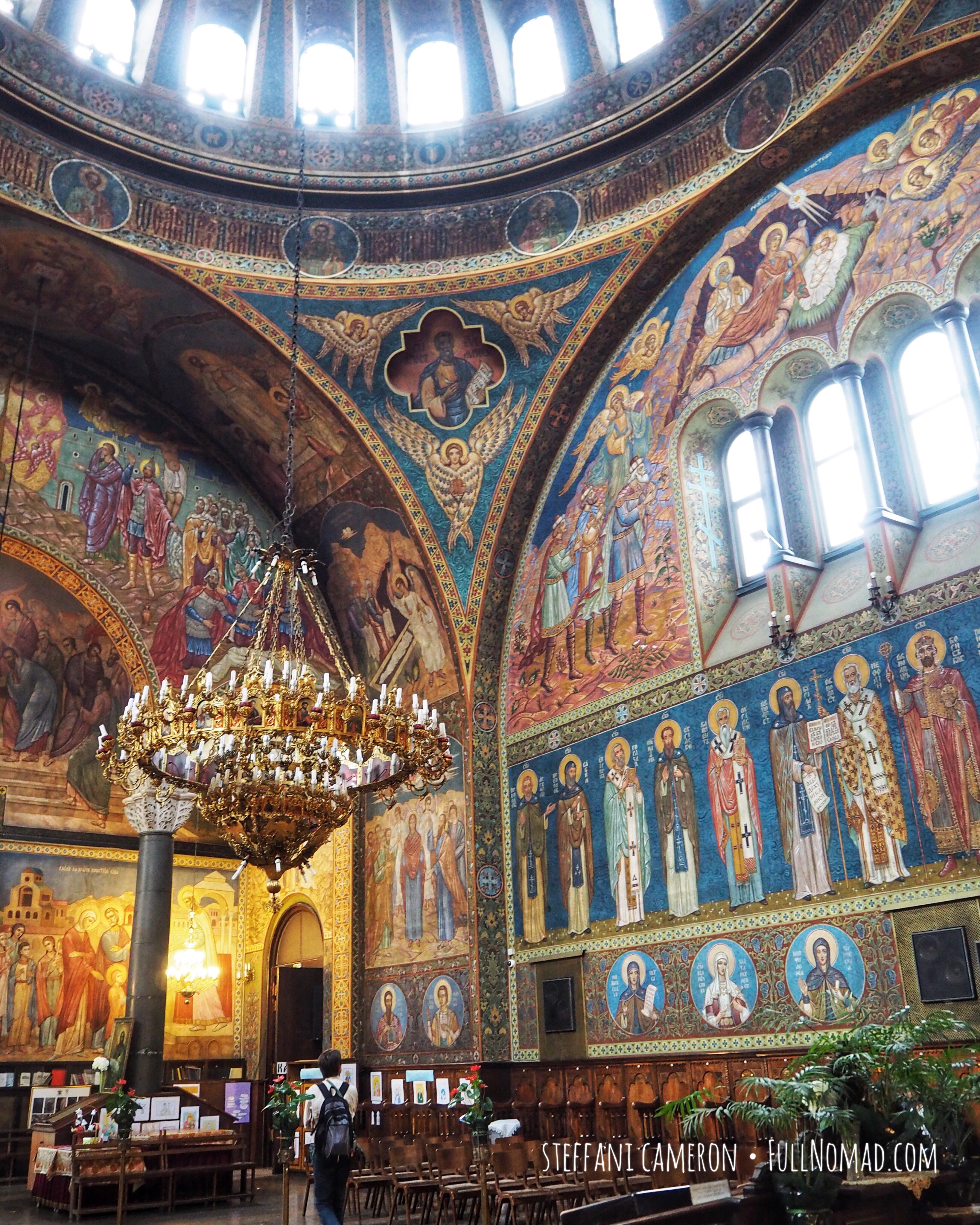
PHOTO: A stunning church in downtown Sofia, this was the site of a horrific bombing in 1925 that killed 150 people. It was reconstructed after. The murals are incredible but are somewhat typical of Eastern Orthodox churches in the region.
My apartment was on the fourth floor of a building 150 or more years old. The area had, at one time, been quite grand. Sofia was once as exotic and wealthy as Budapest had been, and it showed.
Fortunately, the 80 steps up to my apartment were less steep than I would have later that fall in Palermo, Sicily, but it was a grinder for my back. The area, though, was ideal for life as a local.
The apartment was beautifully well-lit, spacious, with a good kitchen. But most of all, it was a terrific neighbourhood. Tree-lined streets were common. Everything I needed was close at hand – including two cheese shops, for sourcing that incredible Bulgarian feta even Greeks flew in to buy large quantities of.
There was a wonderful bakery with bread I later learned was nearly entirely comprised of butter, explaining how I couldn’t get enough of it. (Soon, I was Steffani “Chonkster” Cameron — 70% water, 20% butter, 10% bluster.)
A few blocks away was a butcher, where I visited in search of a good chicken. There were two kinds of whole chickens in the cases, and I remember trying to ascertain prices and quality. The butcher didn’t really speak English and struggled to explain.
Exasperated, he threw up his hands and gestured at one. “Smile chicken! Village smile chicken from farm!” Then he patted his belly.
Free range organic village-raised chicken? Why didn’t you say so?!
I bought it, took it home, and had one of the greatest roasted chickens in my life.

Photo: Village smile chicken smiles no more — but the consumer of village smile chicken smiles still!
Just around the corner was a place I’d discovered during that first short stay — Franco’s Pizzeria. It looked authentic, by which I mean crappy tiles, basic lighting, and nothing fancy. When you see crowds at a place taking no pains to make itself a “destination,” then you know they’re getting something right.
It was, by far, the best pizza I had anywhere on my travels to that point. I’d even go to Sicily and Naples later that winter, but the memory of Franco’s pizza with ricotta cream, Italian sausage, and pistachios is the one I keep trying to recreate now, 10,000 kilometres away and 2.5 years later.
Plus, there was Antoinette, a waitress at Franco’s. She was practicing English and eventually worked up the nerve to talk to me. Somewhere among my disastrous papers and knickknacks is a little gift she gave me – a 1-lev Bulgarian note (“lev” is the currency, and a 5-lev note would be about $3.75 Canadian, or half the price of a world-class pizza from Franco’s).
On it, she wrote a lovely note to me. The plan, one day, is to frame it along with other currencies I’ve saved over the years.
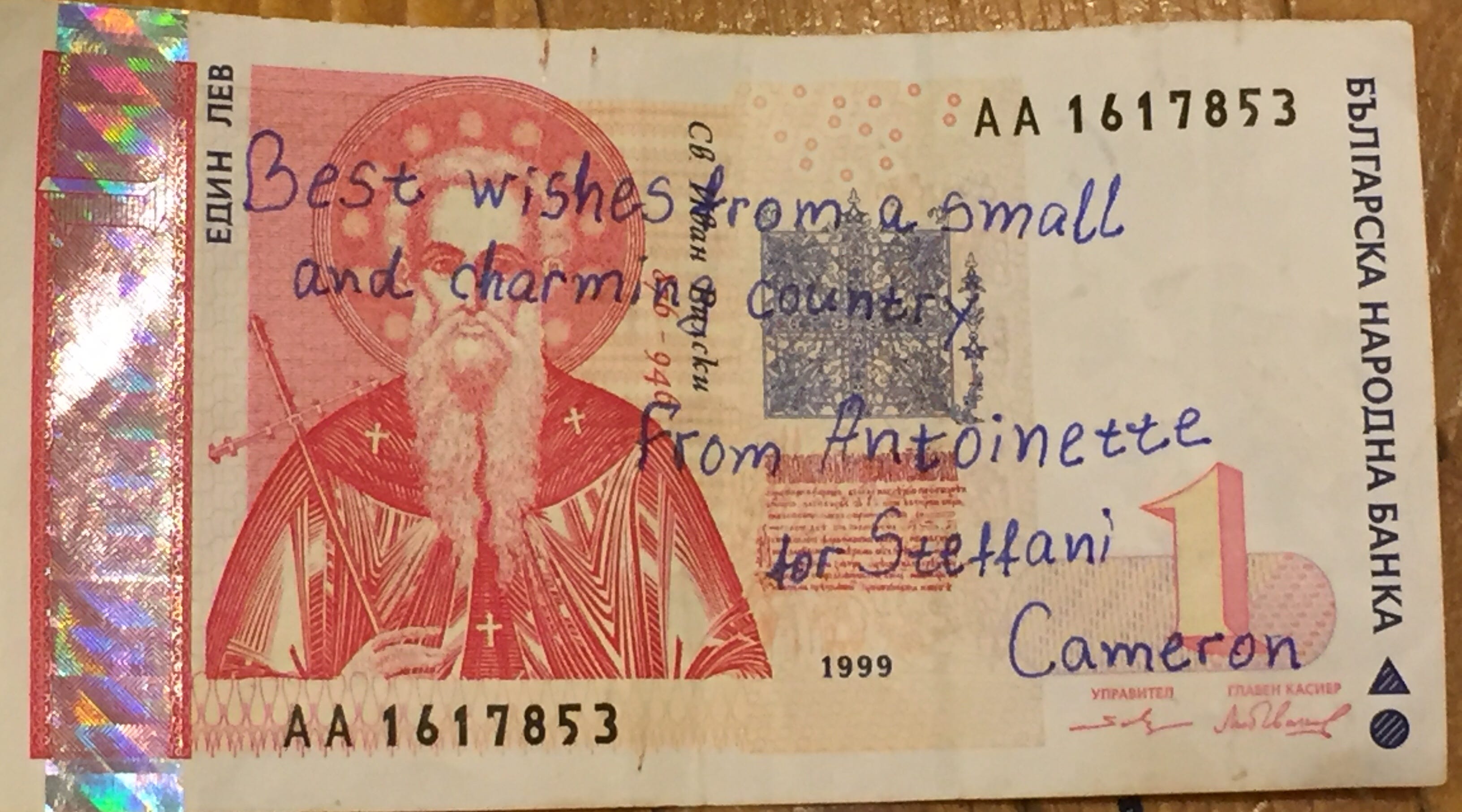
PHOTO: From Antoinette. We became Facebook friends that day.
We’re Facebook friends still. She usually posts in Bulgarian, though sometimes in English.
This week, when she posted photos of “my” Sofia neighbourhood in the rain, my heart grew fonder. (Today, she posted photos elsewhere in Bulgaria — Plovdiv, the oldest continually-inhabited European city, dating back to 7,000 or so BC, where they have the most brutal cobblestones I have EVER walked on. Going to Europe? Spend a few weeks toughing up your ankles and knees on loose gravel, beach rocks, and sand — thank me later.)
The thing about travel is that there are great places to visit and experience, but they’re not always terrific places to live. For me, Sofia was highly liveable. Affordable, great array of restaurants. The food was incredible. (And Bulgarian wine is highly underappreciated; I fell hard for the boldness of Mavrud, of which I drank too much in my time there. If you like bold wines, then look for a Mavrud sometime when you’ve got a great spicy pizza in the works.)
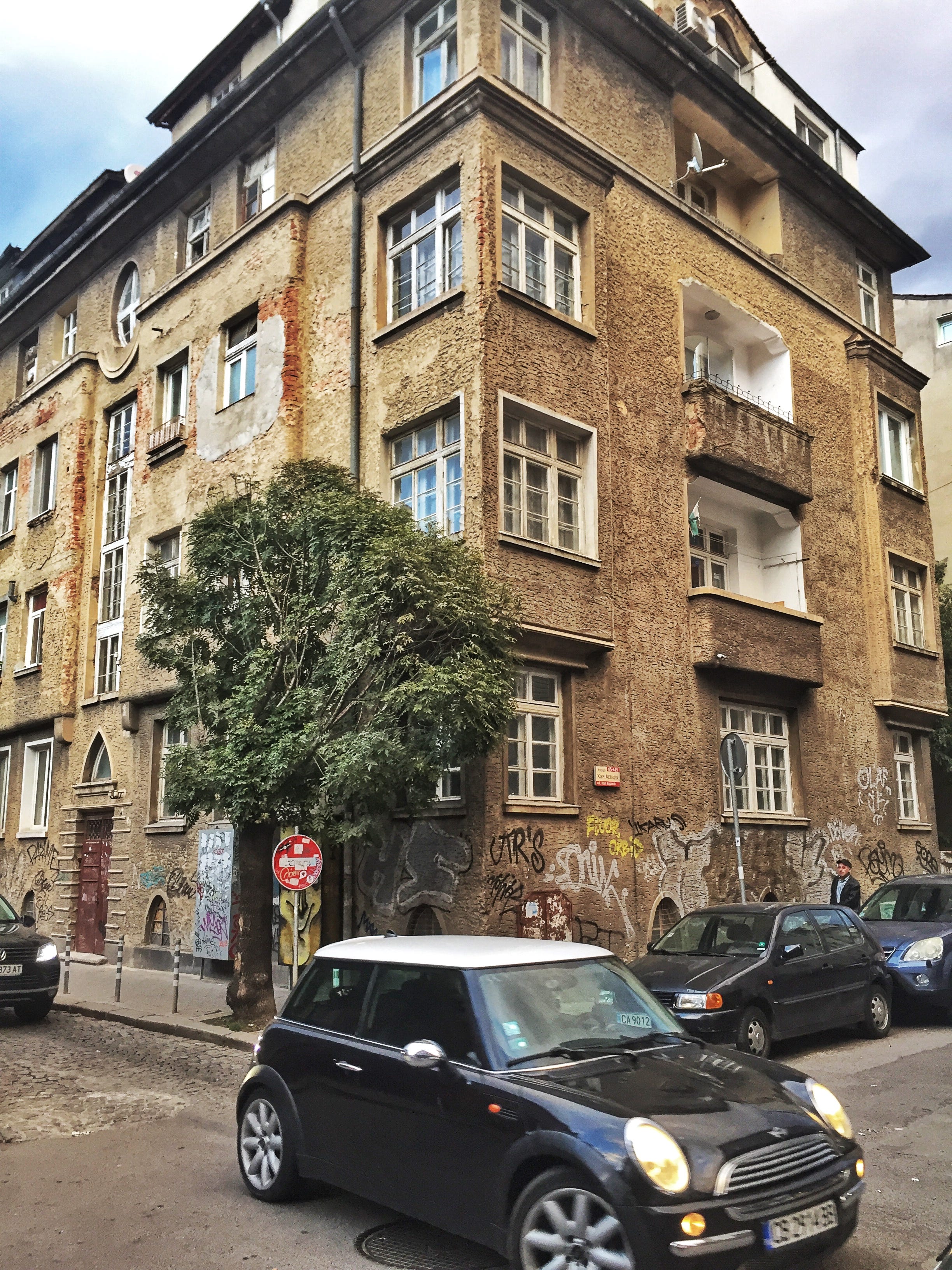
Photo: Rundown buildings, graffiti — c’est ca. But I like it. My hood in Sofia.
Locals Versus Expats
Interestingly, it was one of the rare cities where I had the opportunity to get “in” with a bunch of expats, all English-speaking. They took me to an amazing little Iranian eatery – total shithole – with the most glorious Persian food. “Ashur Banipal,” it was called. They said it was in the “wrong” part of town, a place populated with a lot of immigrants, but also supposedly low-income and more given to crime.
(I say “supposedly,” because I find white folks always say areas with immigrants or folks of colour are “the bad part of town.” When talking about the element that made these areas so shifty, people would always shake their heads and say, “Gypsies.” No matter what was “the bad part of town” in any European city, people always said it was Gypsies/Roma people, or refugees. I took it with a grain or 12 of salt.)
I’m grateful I had that Iranian restaurant experience.
But it took that night and two visits to the expat pub to realize that they were all basically lifestyle alcoholics. I’d met my “in” guy in Istanbul at a cooking class, where attended with his wife. I’d been excited to reconnect, but when everything was accompanied by not one or two beers, but 12 or so, I decided they weren’t my type.
A year into travelling, those folks can be fun, but a few years in, you see them for who they sometimes are – unhappy people living a disconnected life.
I remember moving to the Yukon when I was 21. A nice woman named Lisa became a friend back then and when I first moved to town and worked in the same store as her, she explained something that played in my head for years: “Hang out in bars and you’ll be limiting the circle of people who will want to hang out with you.”
And now I’m the one who sees people through that not-filled-with-alcohol glass.
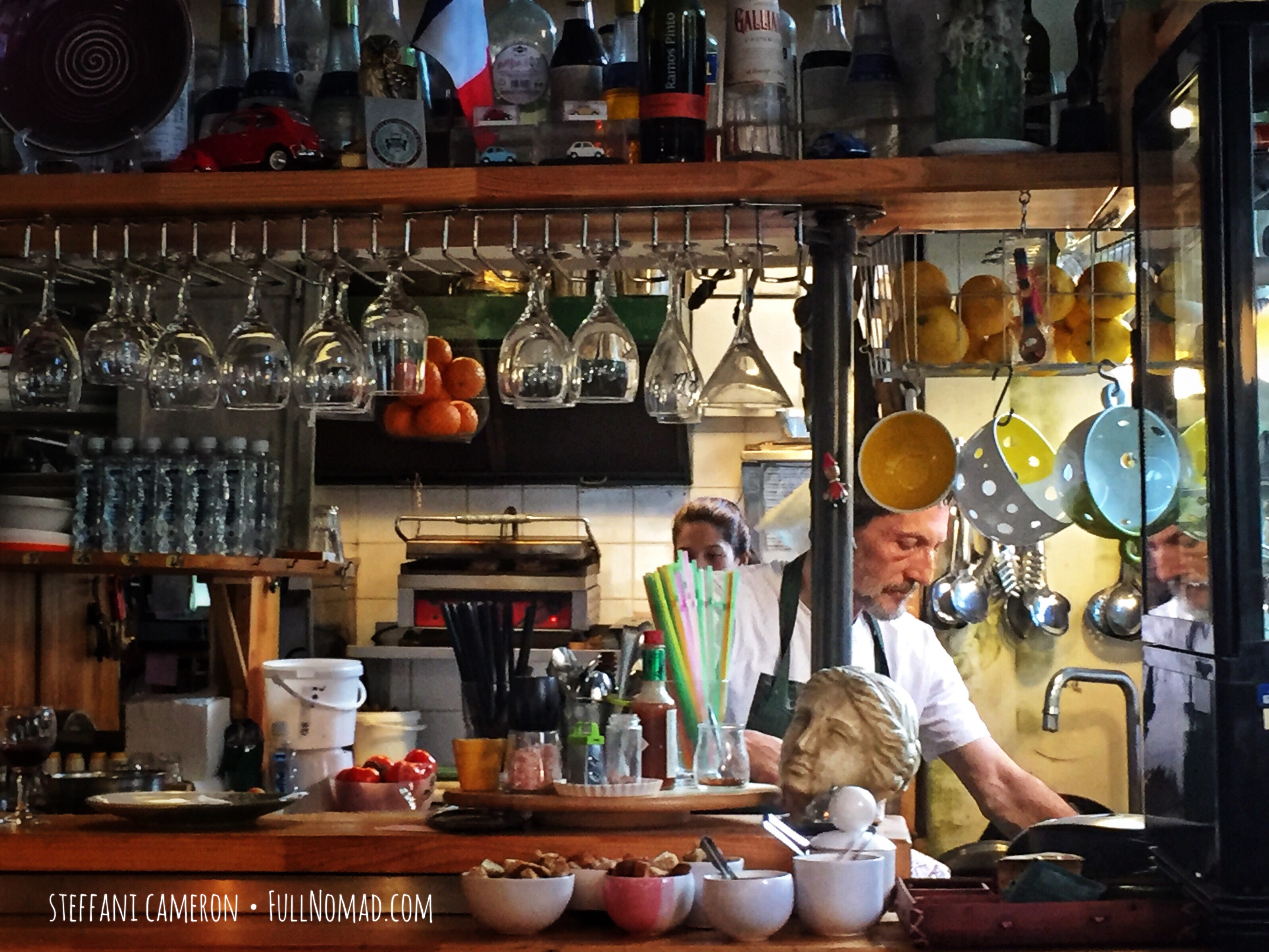
PHOTO: A lovely Italian joint (another one!) that I went to in my neighbourhood. They serve your meal in small saute pans and there’s room for under 20 people inside, plus a well-used sidewalk patio year-round.
Anyhow. I digress. Expats.
Expats leave their nations behind for all kinds of reasons — usually for love, sometimes just because their life headed that way. But there’s an element of expats who drink a lot, all the time, and it’s like they’re trying to drown the voice of dissent within themselves. It’s the voice that tells them they’ll always be an outsider here, they’ll never really belong, so they keep hanging out with other people from cultures similar to theirs, who literally speak their language.
Now, I should add that there’s about a 50-50 chance that I’ll be one of those expats longterm one day. The reality is I may never afford retirement in Canada, and there are places — like Sofia — where I could have a nice life for a fraction of the price here. It’s an option.
I suspect, if I do so, one part of me will be content with my choices. But I also think part of me would remain forever angry that those choices need to be made.
And that’s the sense I pick up on some of these people. Forever torn.
They moved abroad because the lifestyle was more affordable, but eventually they’re paid in that currency, suited to that cost of living, and soon they’re priced out of ever returning home. It’s a kind of slow-burn resignation that simmers under the surface.
There are times when I think back to the cost of living abroad and I can be angry and confused by prices here.
It’s a strange prism through which to see the world – knowing both sides of these affordability coins.
Someone passing through may not ever even register that sense of anger and resentment in expats – unless you’re the one who only drinks three beers while they’re drinking 12. But meet enough of them in enough countries and it’s hard to shake that angst off.
I have another nomad friend who landed in Sofia in between my first stay and my second. I made introductions for those same people and she hung out with them a couple times, and that was it for her as well. Later, she told me she felt the same – that they seemed like incontent expats drinking because it’s the only way their life choices come out in the wash.
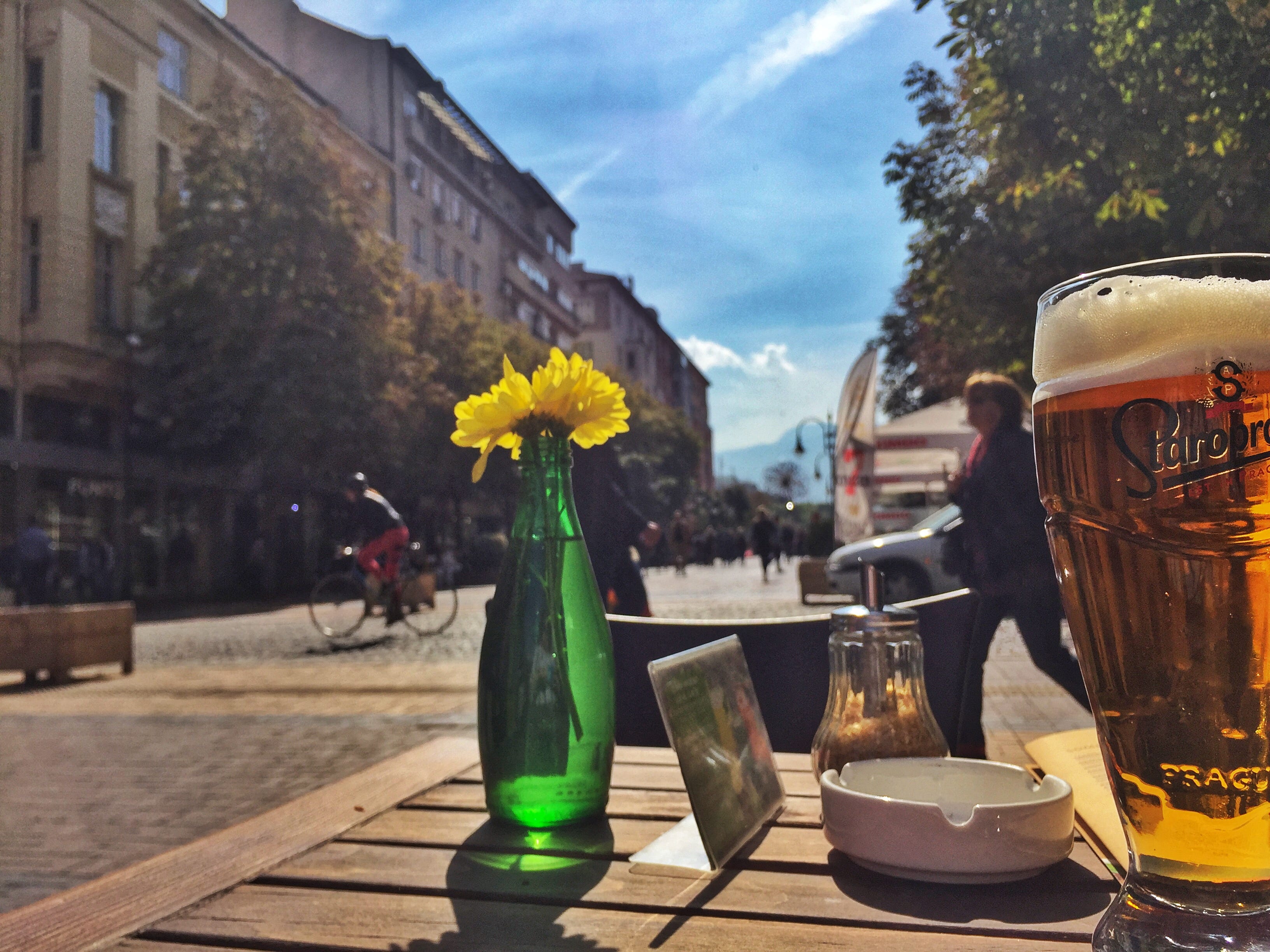
PHOTO: Don’t get me wrong. I love me some beer! Especially on sunshiney patios. This was Sofia’s main drag and a great way to take a break on any given day.
Perspective Before the End
That contrast between the bitterness of being wedged into a new economic reality after a few years abroad, and the inability to make the return back home, was a profound observation for me.
It gave me a lot to think about regarding my travels. My health was problematic – my back was bad, my visa woes necessitated moving around again. Next, I was off to Italy.
I flew from Sofia to Bari for a few days – heaven, with a wonderful little lodging – and then off to Palermo, where I had terrible furniture, a hellishly steep 88 steps, all compounding my back injury.
Just two weeks into Palermo, I decided I’d return home to Canada. I didn’t know what my back’s future contained, but I did know this place-to-place life was making things worse for me, so either I needed to pick a place for the long-term or head home.
The band of malcontents I met in Sofia had much to do with my choice to bet on Canada again.
I remember getting asked to join the expats for a fourth time. Well…
People think I’m just brutally honest, but part of my firebrand outspokenness is because my internal “filter” was a little broken after a head injury in 2003. The result: I say things without thinking, like when whatshisname asked me out for more beers.
I blurted, “Meh, getting drunk all the time isn’t my thing.” Needless to say, he never replied to my requests for coffee after that. Go figure.
Sofia had other downsides too, like a handsy masseuse who violated me, and often derelict sidewalks — among the worst I’d walked in Europe — which seemed they could be a nightmare when snowy.
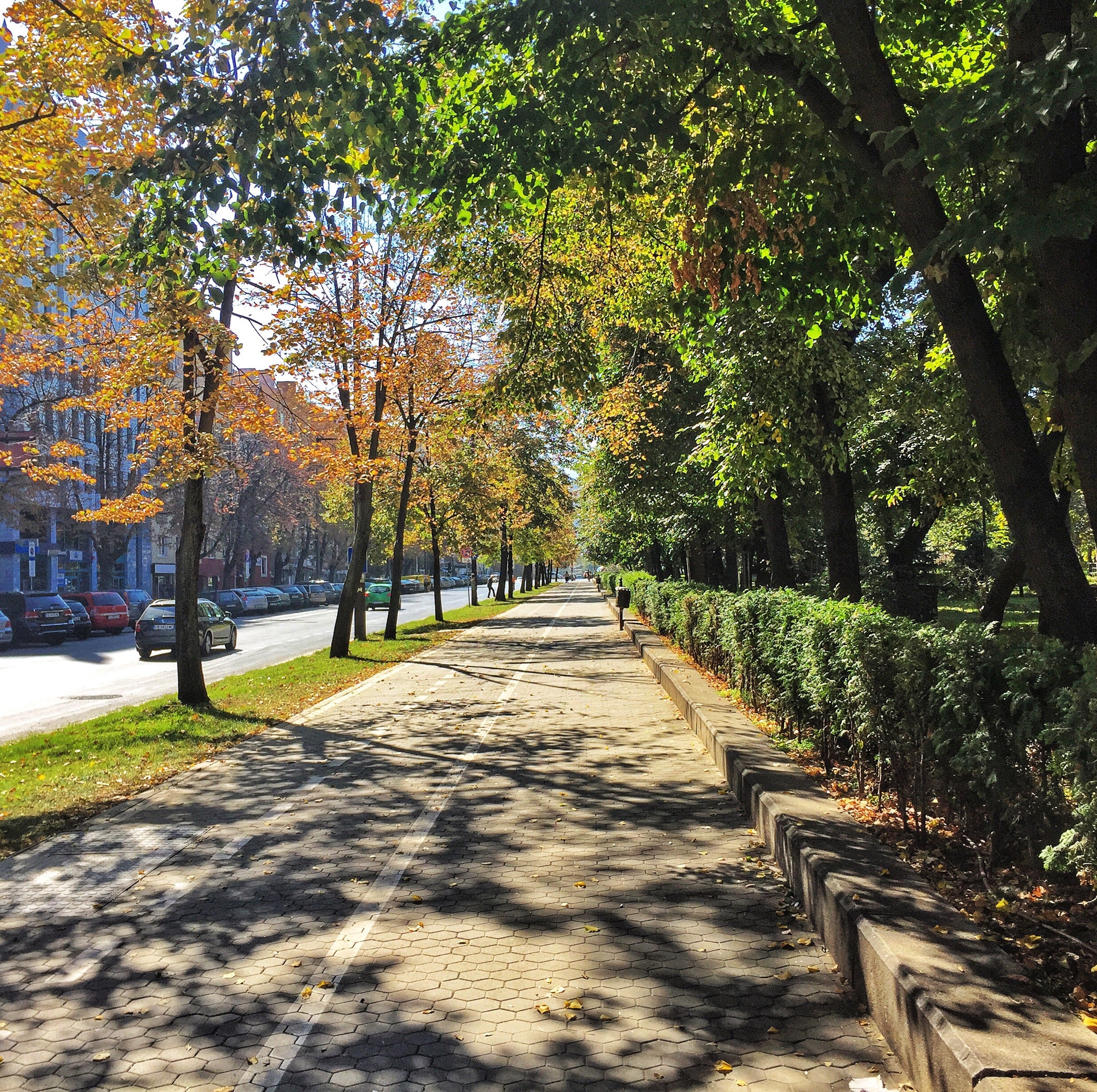
PHOTO: The walk I’d take to the “non-handsy” masseuse that became my biweekly self-care treatment. This park on the right was a lovely place to make friends with dogs. Down the road on the left was a great beer shop with a lot of craft beers from all over Europe — Sofia was terrific for food and drink trends.
Still, when I think about Sofia, it mostly makes me smile.
Like the village smile chicken. I’d like to go back again. The threepeat!
Ultimately, though, the problems in Sofia reminded me that everywhere has shortcomings — but when you’re from somewhere, you understand the local problems, and at least you’re “home.” You have that local edge for navigating the system.
Fittingly, one of my last things I did in Sofia was to get a haircut. The stylist had only been in business there for a year or so but had been in the UK for most of his adult career. He was a Sofia boy by birth, though, who went to London to learn the hair businesses.
Somewhere along the way, he realized that all the extra money he made in London simply paid for a London-priced life, and income is relative. Returning to Sofia, he could live more cheaply, run his business, make his own hours, and have a better work-life balance. Plus, he wouldn’t be an outsider anymore.
People write a lot about why they leave their home or why life abroad makes sense, but they don’t tell you how often folks live abroad for a decade or two and then ultimately decide they want to return home. I’ve seen that in every country around the world — people headed to Western nations to make their fortune and eventually returned home because they missed their music, food, people, culture, holidays, and traditions.
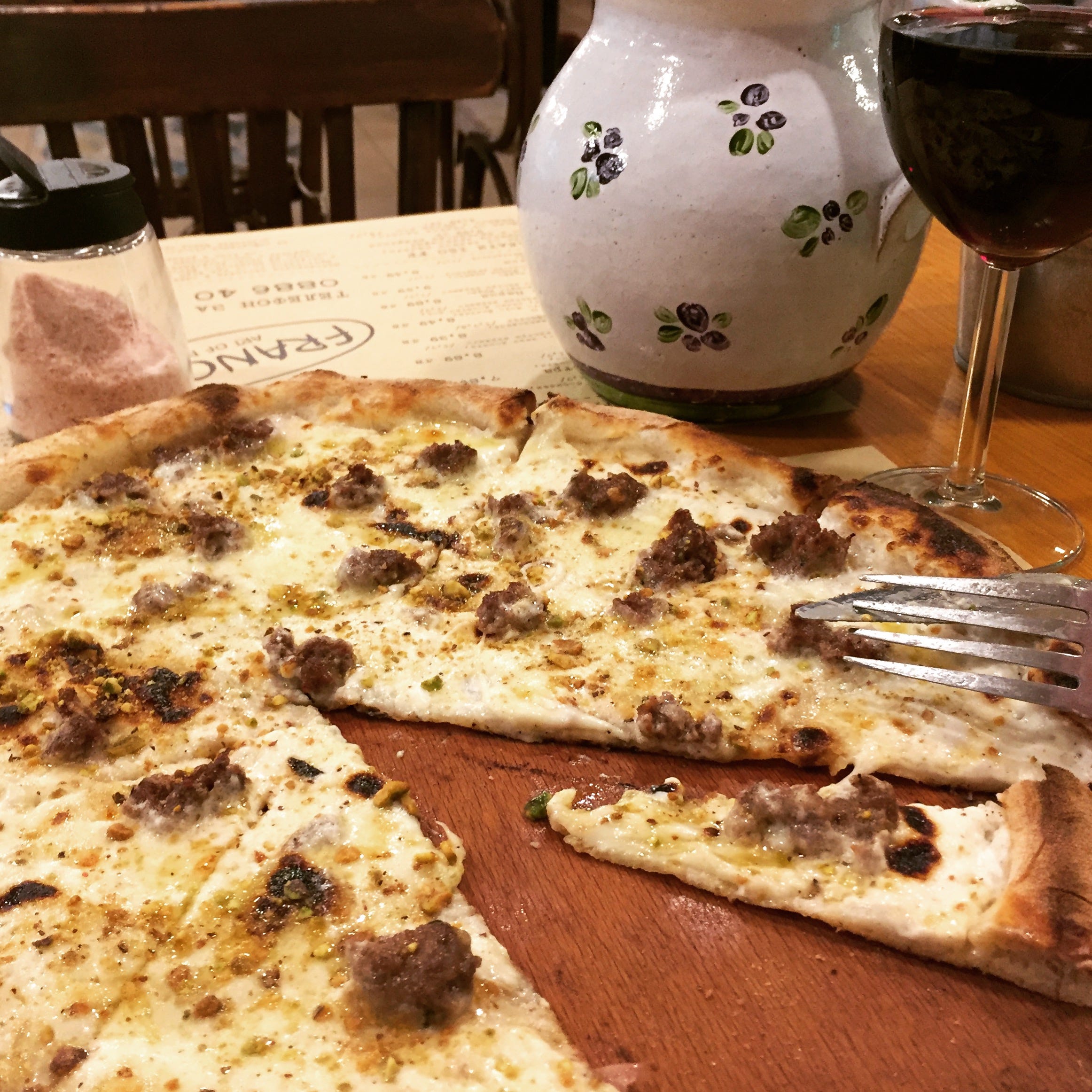
PHOTO: I can’t for the life of me get this pizza right, but god knows I’ll keep trying. Franco’s salsiccia and pistachio pizza will remain as memorable as any I had in Naples — and far cheaper. And it came with Antoinette’s smiling face and friendly chatter.
There’s something about belonging that you can’t recreate. Expats get together in watering holes with alcohol and stories, but it’ll never be like home – and if living abroad means they find people of their own cultures to surround themselves with in the middle of a foreign world, well, I’d argue they’re not living abroad for the experience, but because they’re simply looking for a bargain on lifestyle. And what a shame that is.
Hey, I get the hunt for an affordable lifestyle and may eventually make those choices myself, because I don’t know if retirement in Canada on a single writer’s income is realistic. It’s an option. But I would hope that, wherever I go, I create relationships with locals rather than looking for communities with a lot of white Western expats. Otherwise, what’s the point?
Thanks for reading.
Sharing is caring — we writers love retweets and other social media sharing.
PS: There’s a lot of race-related debate about the word “expat” versus “immigrant.” When I say expats, it’s folks — not necessarily white! — from Western countries who move abroad then hang out with other “expats,” and who likely won’t be there in 10 or 15 years. They’re often people trying to improve their quality of life by moving to cheap nations where their dollar is worth far, far more.
“Immigrants,” IMHO, are people moving from abroad to make a new life with the intention of spending the rest of their life in that nation. They’re often moving to a more expensive nation where it’s harder to get established — and they’re typically taking a more courageous leap.
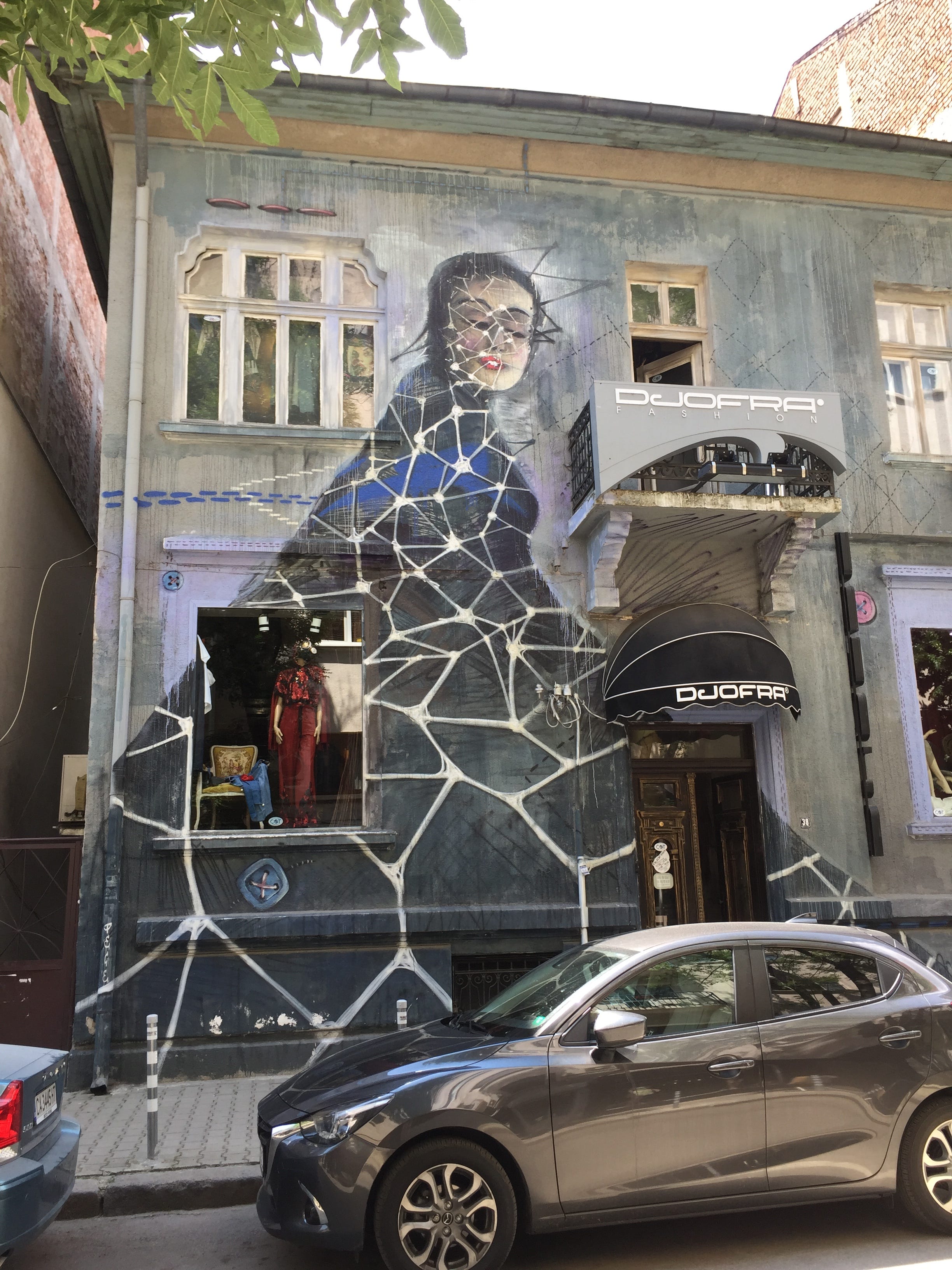


Member discussion